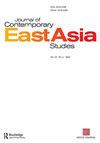Patterns and views of China’s public diplomacy in ASEAN countries: focusing on Confucius Institutes
IF 1.4
Q1 AREA STUDIES
引用次数: 6
Abstract
ABSTRACT China’s public diplomacy in ASEAN countries started as part of strategic partnership both at the regional and bilateral levels since the mid-2000s. Focusing on Confucius Institute (CI) as one of the earliest means of China’s public diplomacy, this article aims to make a comparative review of establishing processes of CIs and examines features of the CI program, functions of the CI networking, and perceptions of the youth of host universities and local societies. Based on the empirical surveys, this article argues that China’s public diplomacy through CIs in the ASEAN countries is an institutional building process to develop young human resources with Mandarin proficiency, to promote business relations, and to disseminate China’s official ideas through CIs’ public forums to the extent that the CIs’ network has been utilized to promote the conceptual synergy of “One Belt One Road” “Maritime Silk Road in the 21st Century” with ASEAN Connectivity. In conclusion, this article argues that due to a wide gap particularly in terms of social pluralism and open access to multiple sources of information in the region, the rapid growth of China’s public diplomacy through CIs will have a double-edged effect, conducive to promoting relations with China and a centrifugal force to the ASEAN Centrality in the decade to come.中国在东盟国家的公共外交模式与观点——以孔子学院为中心
摘要中国对东盟国家的公共外交始于2000年代中期,是区域和双边战略伙伴关系的一部分。本文以孔子学院作为中国最早的公共外交手段之一,对孔子学院的建立过程进行了比较考察,并考察了孔子学院项目的特点、孔子学院网络的功能以及主办大学和地方社会青年的看法。基于实证调查,本文认为,中国通过在东盟国家的CI进行公共外交是一个制度建设过程,旨在开发具有普通话水平的年轻人力资源,促进商业关系,并通过CI的公共论坛传播中国的官方理念,从而利用CI的网络促进“一带一路”“21世纪海上丝绸之路”与东盟互联互通的概念协同。总之,本文认为,由于该地区在社会多元化和开放获取多种信息来源方面存在巨大差距,中国通过CI进行的公共外交的快速发展将产生一把双刃剑,有利于促进与中国的关系,并在未来十年对东盟中心地位产生离心力。
本文章由计算机程序翻译,如有差异,请以英文原文为准。
求助全文
约1分钟内获得全文
求助全文
来源期刊

Journal of Contemporary East Asia Studies
Social Sciences-Cultural Studies
CiteScore
2.50
自引率
0.00%
发文量
10
审稿时长
6 weeks
 求助内容:
求助内容: 应助结果提醒方式:
应助结果提醒方式:


